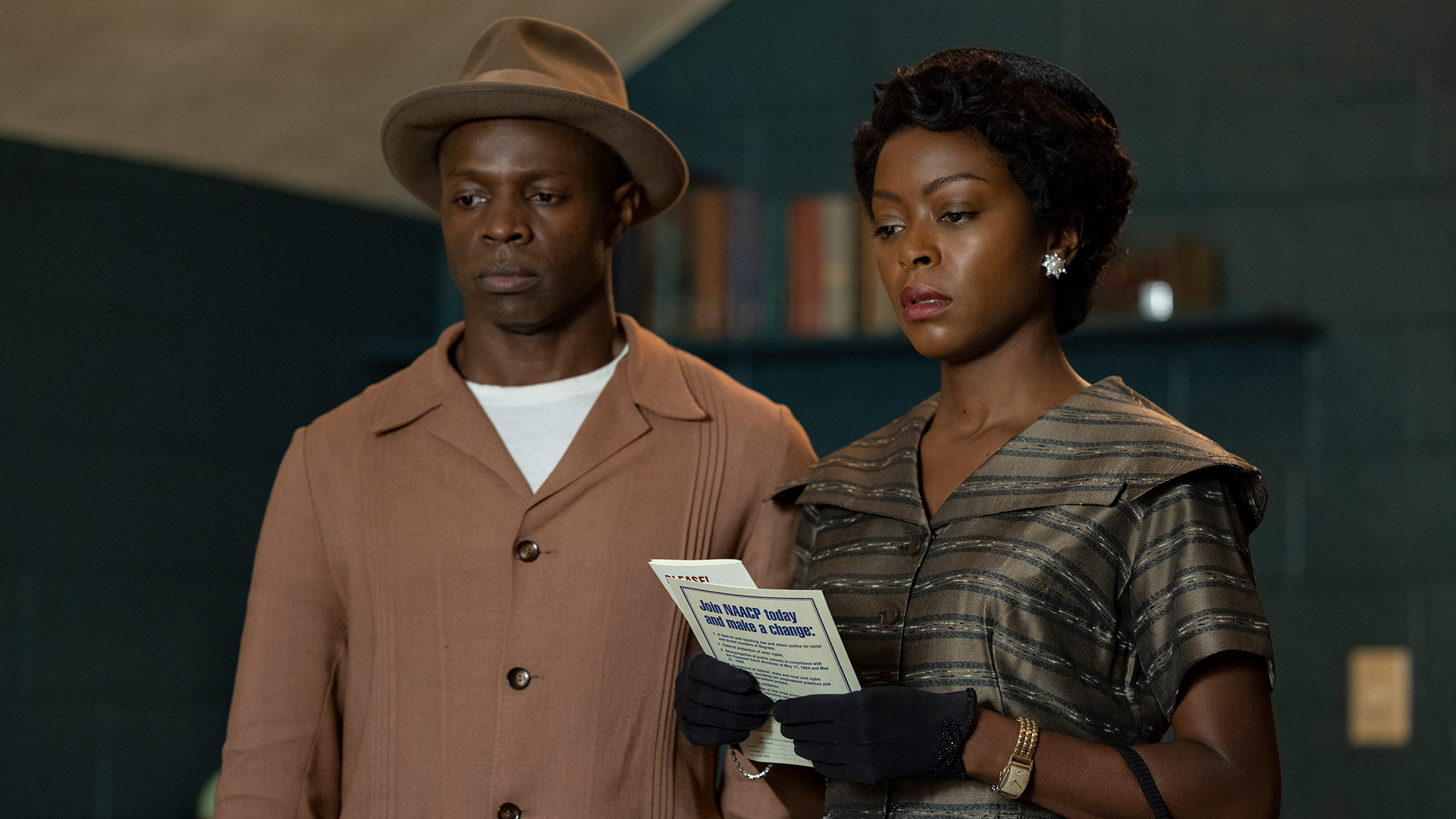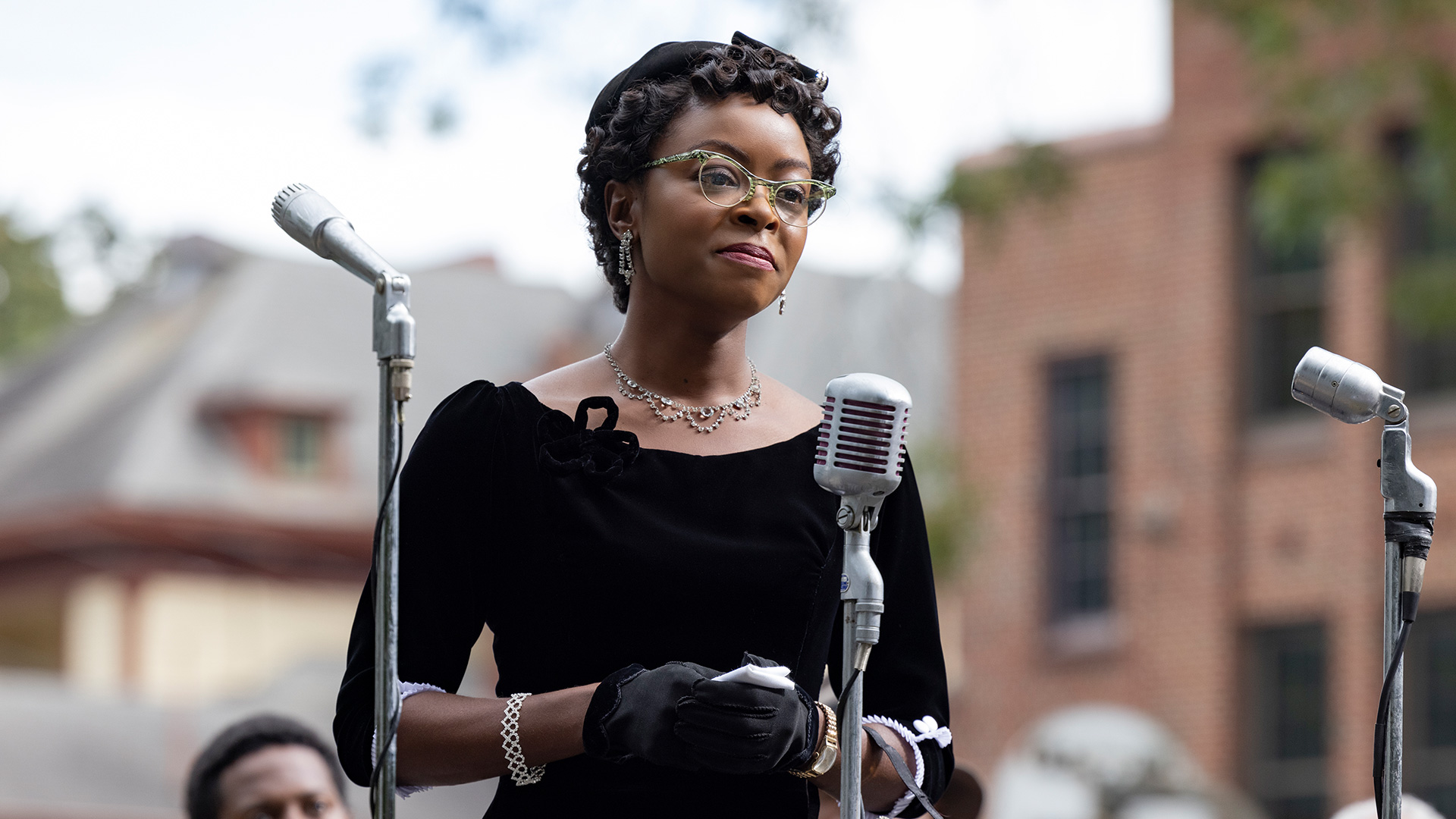Moving portrait Till is a brutally honest portrayal of American racism

Danielle Deadwyler plays Mamie Till-Mobley in Till, a biopic on the educator and activist’s fight for justice after the 1955 lynching of her 14-year-old son. As Katie Smith-Wong writes, this is another bold film that highlights the shocking extent of racial injustice suffered by African Americans.
In 1955, 14-year-old Black teenager Emmett Till was abducted, tortured and murdered for whistling at a white female shopkeeper in Mississippi. His death caused outrage across America and drew attention to the violent prosecution of African Americans. This marked a significant moment in the Civil Rights Movement, and 67 years on, Till’s murder is the inspiration for the latest film by American filmmaker Chinonye Chukwu (Clemency and alaskaLand).
Starring Danielle Deadwyler (known for her role as Cuffee in The Harder they Fall), Till documents Mamie Till’s life and involvement in the Civil Rights Movement after her son Emmett (Jalyn Hall) is found dead in Mississippi.
After films such as 12 Years a Slave, The Birth of a Nation (2016), and Selma, Till is another film that highlights the shocking extent of racial injustice suffered by African Americans. However, Chukwu’s feature boldly goes further to educate audiences about Emmett Till—not only was the victim a child, but his death is still prominent in modern-day culture. As of 2022, there have been recent developments such as protests, unserved arrest warrants and unreleased memoirs involving Carolyn Bryant, the woman who accused Till of acting inappropriately. In addition, President Joe Biden signed a law that made lynching a federal hate crime in America. There is no better time to tell the tragic story of Emmett Till.
Raised by single mother Mamie (Deadwyler) in Chicago, Emmett possesses a happy-go-lucky attitude that reflects an innocence to the ways of the world. Played wonderfully by newcomer Jalyn Hall, he is naive about the prejudice and racism inflicted by his peers. Furthermore, he thinks that his city charm will win people over while he is on holiday in Mississippi, so he unwittingly puts himself and his family in danger and the severe consequences of his actions do not sink in until he is hauled out of his relatives’ home in the middle of the night.
The collaborative screenplay by Chukwu and filmmaker Keith Beauchamp, whose research into Till’s murder led to it being reopened in 2004, builds a deep sense of dread that emanates from Mamie’s evident anxiety. Having left Mississippi with her mother Alma (Whoopi Goldberg) when she was younger, she knows how African-Americans are treated and does her best to discipline Emmett before he leaves. Although the crime occurs off-screen, Chukwu retains the horror of the murder and the apprehension of knowing what happened to the teenager. Combined with Mamie’s compounded fears about her son and her sorrow at seeing his body, there is a constant distressing tone that reinforces the brutality and tyranny of American racism, and the heft of emotions that come from it.

This discomfort continues into the second half of the film, which oversees the trial of Emmett’s murder. Taking place in Mississippi, the Black community is met with contempt and disrespect, and subjected to searches before entering the courthouse. Meanwhile, a white child avoids being disciplined for causing panic by firing a toy gun outside a courthouse—instead, his acts are met with laughter. These scenes brilliantly convey the stark differences and notable inequality between different communities, as well as reiterate the unshakeable bias that ultimately dominates the legal proceedings to its predictable but still horrifying conclusion. These scenes may make Till difficult to watch, but Chukwu reminds audiences that this is not a narrative nor a point in history to be taken lightly.
The film’s focal character is Mamie Till, whose restless nature about her son’s disappearance reiterates the importance of Emmett’s murder—from the unique perspective of not only a mother but a Black woman in America. When Emmett’s death becomes public, she is a numb shell; unable to comprehend the loss and logic of her child being murdered so the seemingly self-centred eagerness from local politicians and preachers to use Emmett’s murder to pass key legislation for African Americans comes across as insensitive—until Mamie bravely decides to show the world the horrors inflicted on her son.

Along with Chukwu’s refined direction, the screenplay consistently focuses on Mamie’s emotionally fraught journey from the loving mother to the determined would-be activist, which is fortified by Deadwyler’s startling turn as Mamie. Her performance easily dominates the film, overshadowing the emotional performances of supporting stars that not only include Goldberg but Frankie Faison, Jayme Lawson and Sean Patrick Thomas, as Till rightly keeps her at the forefront.
In her third directorial feature, Chukwu doesn’t compromise the narrative for sentimentality—instead, she ensures that her film drives home the horrors of Emmett Till’s murder and the tyranny of racial inequality while conveying the pain of a grieving mother. Combined with Abel Korzeniowski’s poignant score and Deadwyler’s heartbreaking performance, Till is a brutally honest portrayal of American racism and the moving portrait of a woman whose pain drove her to help others.




















